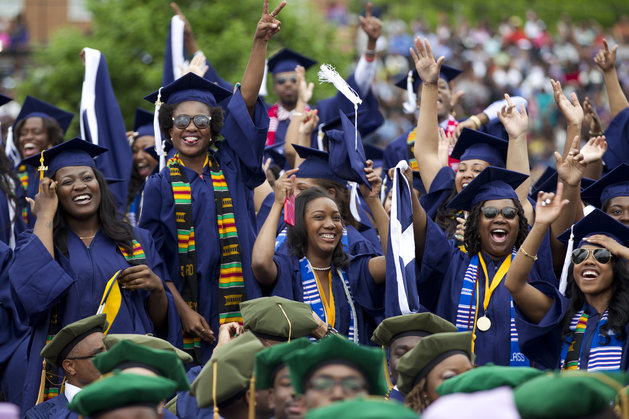Multiple HBCUs around the country, including smaller ones like Morris Brown College and Allen University, will be receiving much-needed aid thanks to a new $5.6 million initiative! Get the full story on the Our Money Matters program and the full list of HBCUs that will benefit from Chanel Hill at The Philadelphia Tribune below.

College students attending Historically Black Colleges and Universities (HBCUs) and Minority Serving Institutions (MSIs) who are dealing with financial hardships on campus will be getting additional support.
Lincoln University is among seven colleges and universities joining Our Money Matters, a financial wellness program that will help students of color with problems like college debt and food or housing insecurities by finding solutions to take control of their future finances.
The Institute of Policy Studies reports that 37% of Black families carry debt equal to or greater than their assets. The average minority student has about $50,000 in student loan debt.
“We’re very excited about this partnership,” said Aldustus Jordan Sr., vice president of community relations for Wells Fargo. “Addressing student debt, providing financial support, and counseling is one step, but the long-term goal is to build generational wealth within the Black community.”
The program is a part of the Historically Black Colleges and Universities Community Development Action Coalition, a national nonprofit that supports and advocates for HBCUs and the community development industry. The $5.6 million initiative is funded by the Wells Fargo Foundation.
Within three years, Our Money Matters will expand to 25 HBCU and MSI campuses across the U.S, supporting nearly 40,000 students and their surrounding communities.
Also participating in the program will be Morris Brown College in Atlanta, Bowie State University in Bowie, Maryland; the University of Illinois at Chicago; Southern University at New Orleans; Allen University in Columbia, South Carolina; and Miles College in Fairfield, Alabama.
“We wanted to put a focus on the smaller HBCUs,” said Temple Jackson, program manager at HBCU Community Development Action Coalition. “Our plan with Lincoln is to make sure that we get students prepared in different phases of their college career.
“Within the next week, we will be introducing students and parents to courses on how to fill out the FAFSA [Free Application for Federal Student Aid] and we will also be offering courses throughout the first semester for the student body.”
Lincoln University President Brenda A. Allen said the initiative will teach students about financial literacy.
“Lincoln remains committed to supporting students to persist to and through graduation,” Allen said in a statement.
“This comprehensive education program teaches students financial literacy and connects them with resources to address their financial gaps.”
During the program, students will participate in financial health courses and interactive activities, which faculty and staff can integrate into general education and degree programs.
Through the Our Money Matters Service Suite, students can connect with on-campus and community-based support services for housing assistance, employment opportunities, and career closets that provide access to appropriate interview and work attire.
Students can also access iGrad, a digital platform that will help with day-to-day finances and build new skills and habits for life after college, including personalized tools for managing student loans, a car loan calculator, an investment analyzer, and access to certified financial planners.
“There will be a campus coordinator who will be a liaison between Lincoln and other resources to create a hub of support for students,” Jordan said. “We will provide financial education sessions in partnership with the program and the students.
“We will also connect our talent acquisition team so as students progress and have interest in careers in financial institutions we will be able to create a pathway between institutions and other agencies to Wells Fargo to help build and launch graduates’ careers,” he added.
Jackson said the program will also work with community-based organizations surrounding the historically Black university in Chester County.
“We want to build within the community,” Jackson said. “We just don’t want to create a future for students, but we also want to create opportunities for them within the community that supported them in college.”



